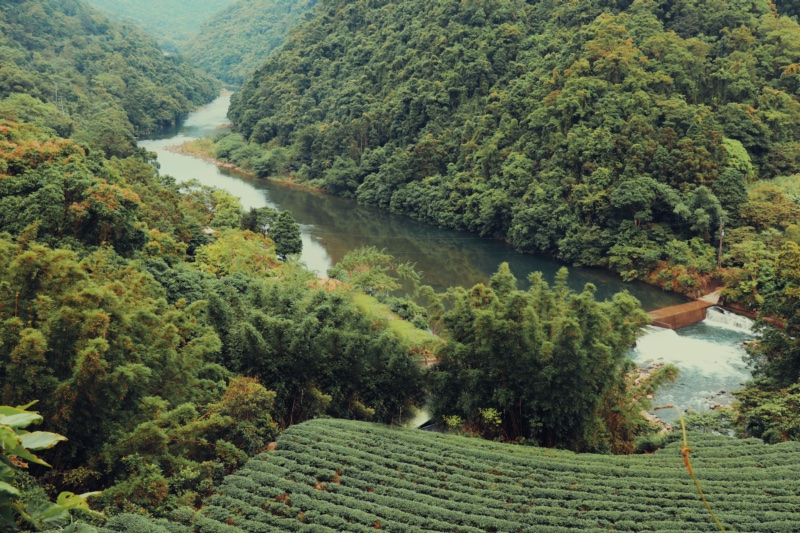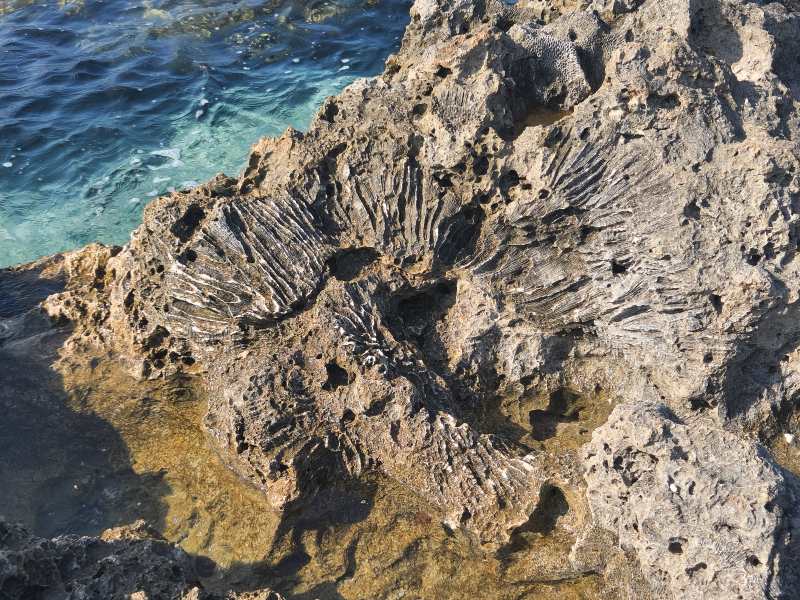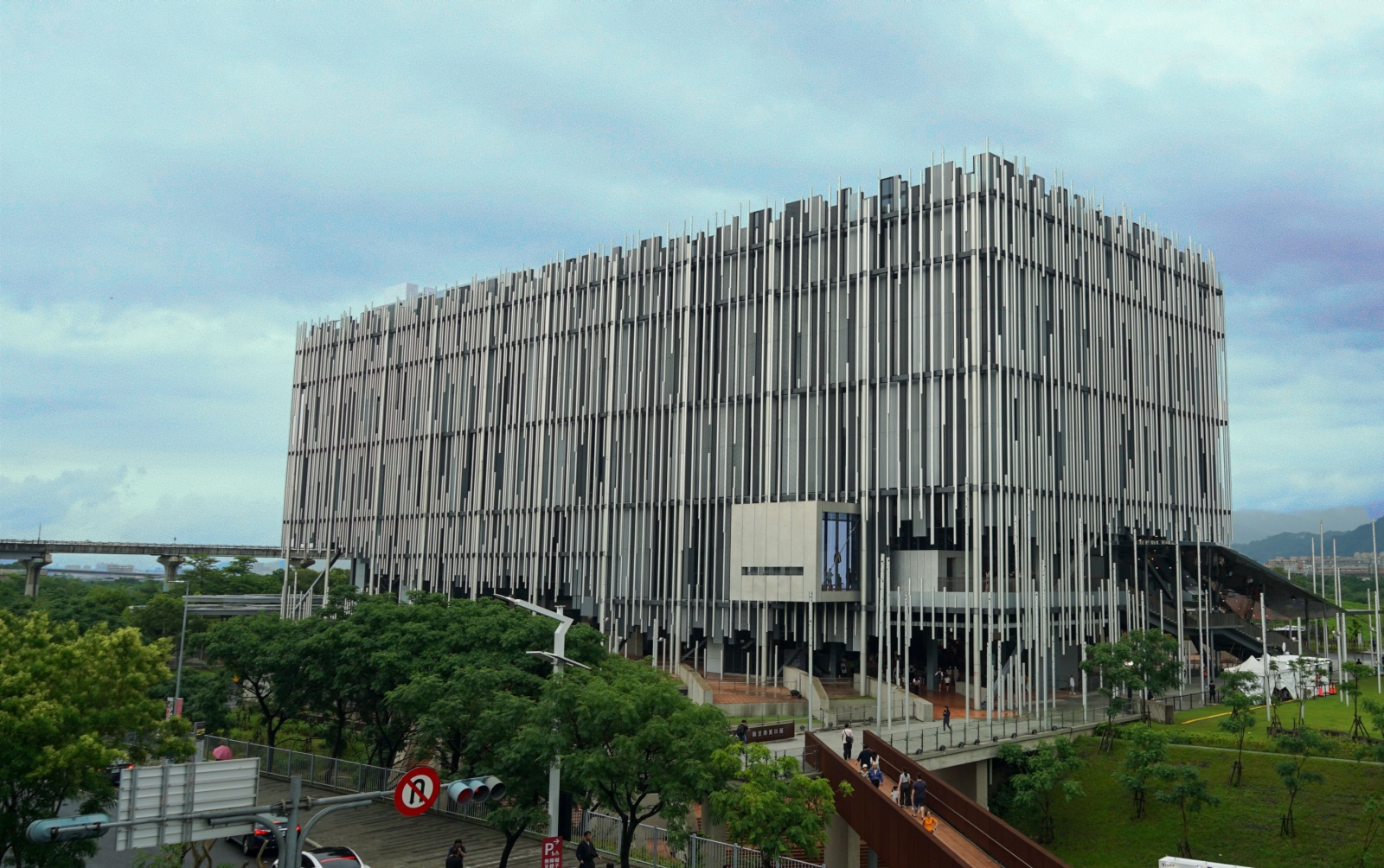Author: Julien Huang & Levarcy Chen
Photographer: Levarcy Chen
Editor: Levarcy Chen
Famed for its tea, the small town of Pinglin (坪林) is one of the closest tea-producing areas to Taipei City, easily accessible via direct buses from Xindian MRT Station. Thanks to its unique topography and the “northern descent phenomenon” caused by northeast monsoons hitting the surrounding mountains, Pinglin boasts incredible biodiversity. The Beishi River (北勢溪) , one of the main sources of the Xindian River, flows through the area and into the Feitsui Reservoir. As a key water source, Pinglin has been designated a national-level water resource protection zone. Stringent conservation regulations may give it a rural vibe, but in today’s age of environmental consciousness, Pinglin has been ahead of the curve—by nearly three decades.
Pinglin’s tea industry is just as unique. Many tea farmers here manage the entire process themselves—from growing and harvesting to production, packaging, and sales. In recent years, a new generation of young farmers has returned to their hometown, bringing fresh energy and ideas. Together, they formed the Pinglin Youth Tea Development Association, working to revitalize the image of Pouchong tea (包種茶) , strengthen local branding, and expand export markets. This emerging force is quietly transforming the local tea scene.
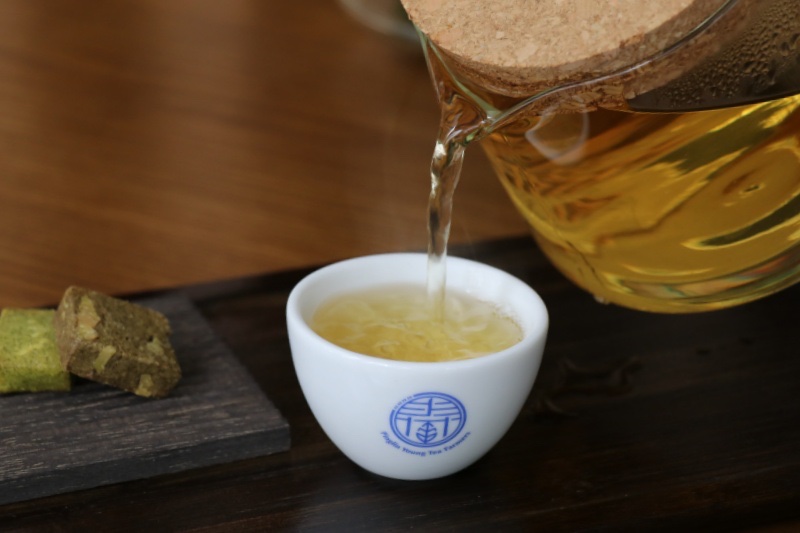
Unlike the traditional one-man model of older generations, these young tea makers are building a culture of collaboration. The association serves as a platform to share ideas, promote Pinglin, and support one another—proof that teamwork can bring fresh visibility and momentum to this quiet town.
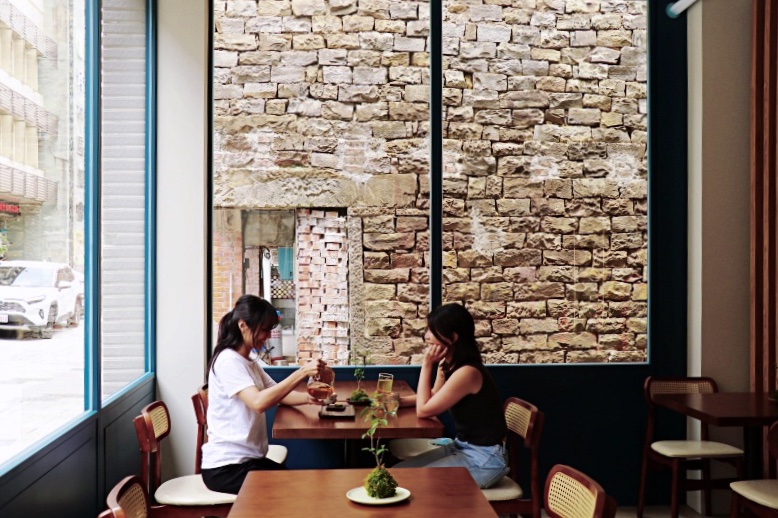
In April 2024, the group launched UChung 有種茶, a multifunctional tea bar/cafe that blends dining, creative tea gift sets, tea-infused cocktails, and hands-on cultural experiences. It’s a welcoming space for travelers to encounter Pinglin’s tea culture in a relaxed and modern setting.

To explore Taiwan’s tea heritage in more depth, make sure to stop by the Pinglin Tea Museum (坪林茶葉博物館)—the only public museum in the country dedicated entirely to tea. Admission is just NT$80 (less than US$3), and the exhibits are presented in both English and Chinese. Housed in a traditional Anxi-style Minnan (閩南安溪) courtyard with elegant Jiangnan-inspired gardens, the museum offers both cultural insight and visual charm.
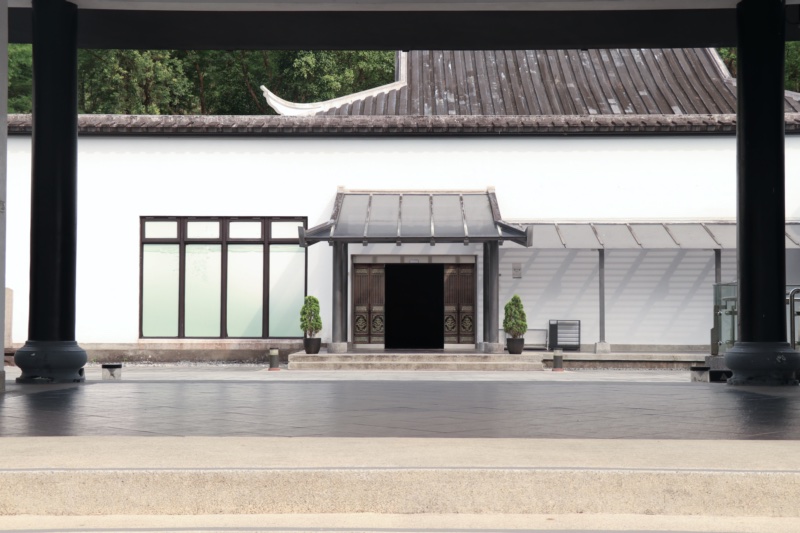

And don’t worry—it’s not a dry academic affair. Whether you’re a tea enthusiast or just tea-curious, the experience is approachable and even fun. You’ll learn about tea trade history, different cultural tea traditions, and the evolution of brewing tools and techniques. One delightful detail? A tiny figurine of a Qing dynasty emperor, tucked inside a teacup and surrounded by toy cows—a playful nod to the royal obsession with milk tea.
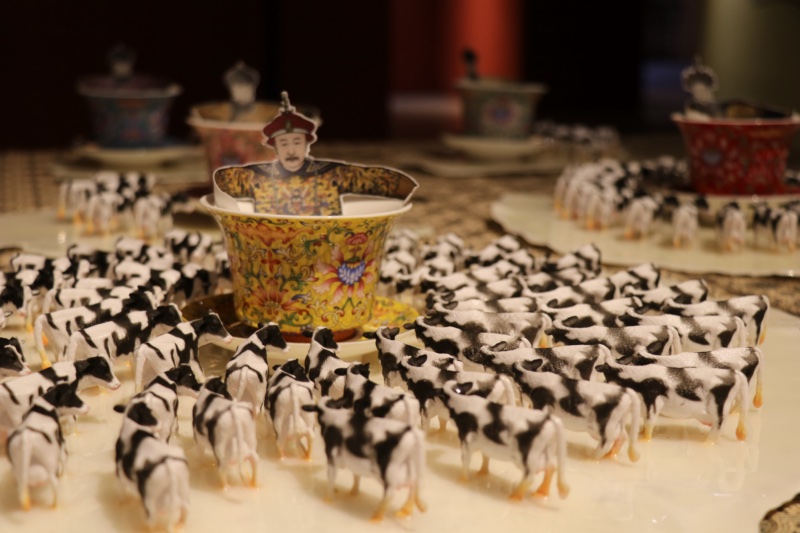
Pinglin Old Street, sometimes called the most literal “old” street in Taiwan, earns its nickname not just from its architecture, but also from its aging population. With many young residents having left, new cafés and restaurants led by returning youth stand out all the more.
One such gem is Xin Cha He Yi (心茶合一), a semi-outdoor, pet-friendly café overlooking the Beishi River, just across a bridge from the Old Street. The cafe is owned by the young local tea farmers with interesting tea infused drinks. Their Pouchong tea cheesecake is a must-try.
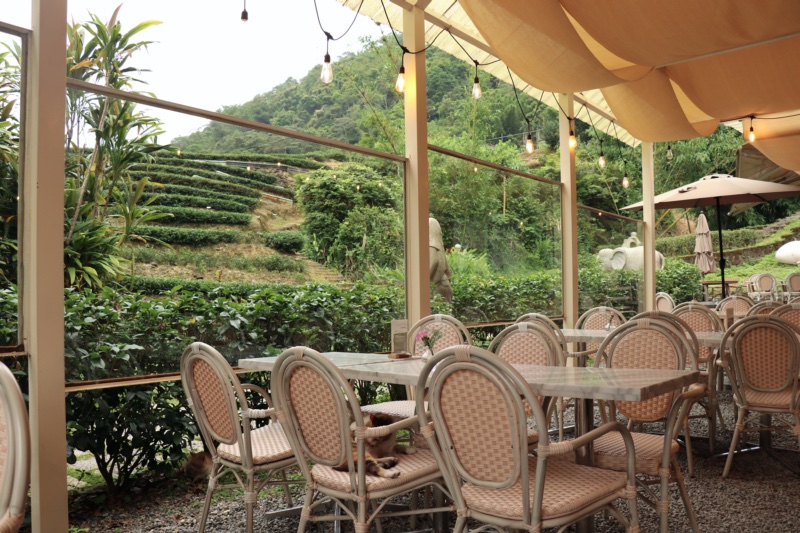
Another can’t-miss is Just Pinglin (坪感覺), known for East-meets-West tea creations like black tea-braised minced pork rice and Pouchong tea madeleines. Even their tea-infused Gua Bao—stuffed with pork belly braised in tea—showcases a delicate balance of flavor and creativity. It’s a beautiful way to experience how tradition is being reimagined with care and modern taste.
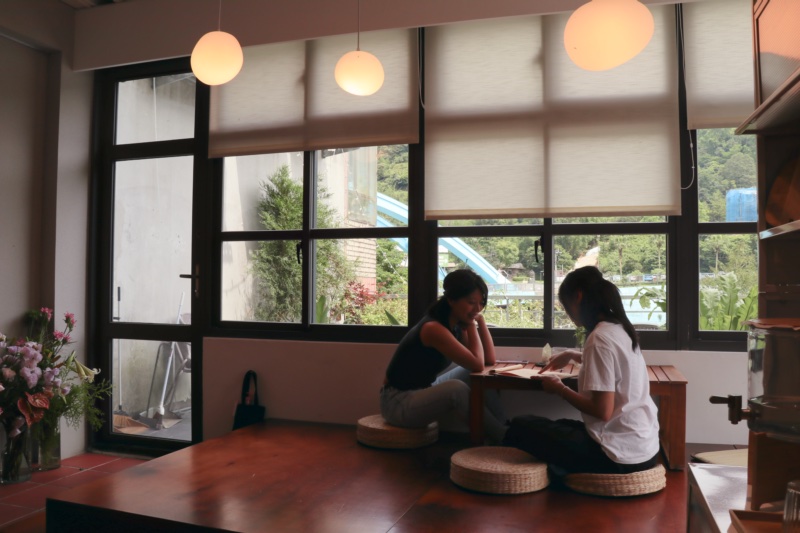


A trip to Pinglin isn’t just about scenic views and good tea—it’s a slow, sustainable travel experience. It’s where returning youth are breathing new life into their hometown, and where travelers can rediscover the value of pausing, sipping, and simply being.
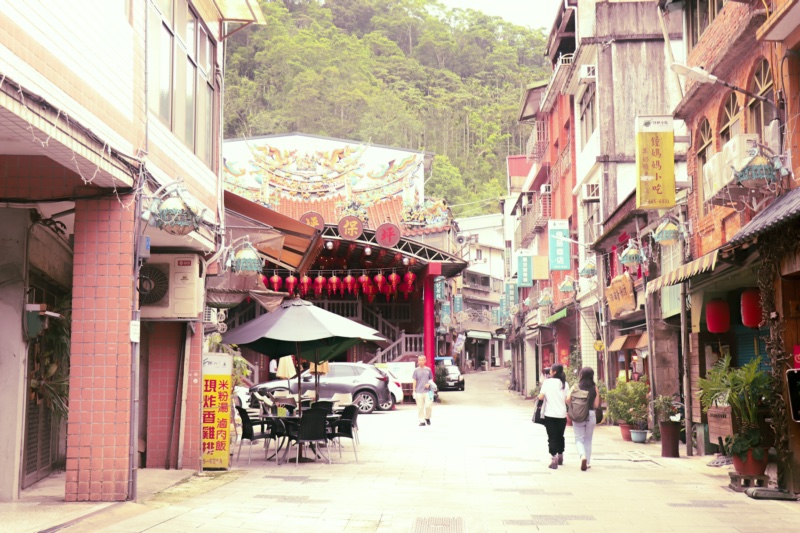
Next time you’re in northern Taiwan, take a fresh look at Pinglin. And don’t forget to bring home a packet of local tea to keep that slow-travel spirit alive.
How to Get There By Public Transportation
- From Xindian MRT Station: Take Green 12 or 923 (Xindian Bus Co.), and get down at “Pinglin terminal stop”.
- From Dapinglin MRT Station: Take Bus 9028 (Xindian Bus Co.), and get down at “Pinglin terminal stop”.
- Online bus trackable map (English!)

